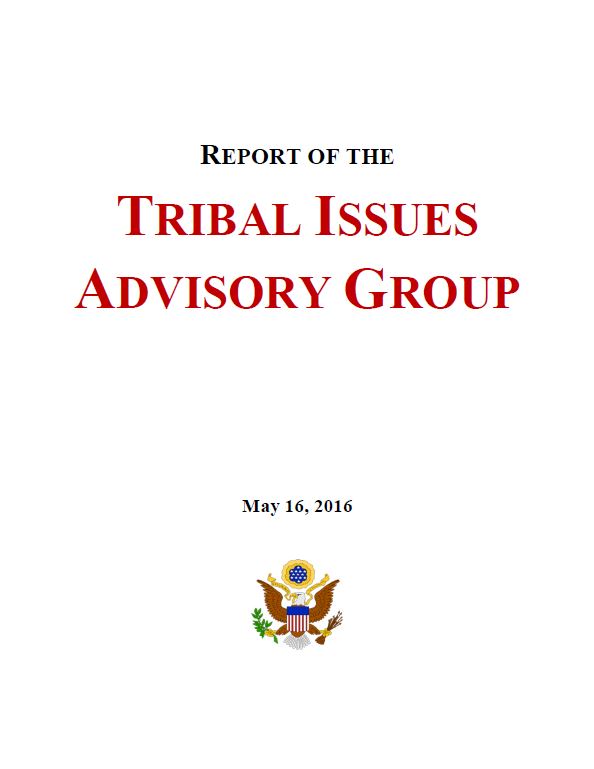Summary

Key Recommendations
The Tribal Issues Advisory Group (“the TIAG”) makes several recommendations to the United States Sentencing Commission (“the Commission”) for revisions and additions to the Sentencing Guidelines (“the Guidelines”), for tribal consultation, and for other changes. The TIAG suggests that the following revisions be made to the Guidelines and policy statements:
- Adding an application note and commentary to USSG §4A1.3 to guide when tribal court convictions may be considered for a possible upward departure in the defendant’s criminal history category;
- Including in USSG §1B1.1 a definition of “court protection order;”
- Amending USSG §5H1.1 regarding the “age” policy statement;
- Adding a departure concerning juvenile and youthful offenders as USSG §5K2.25;
- Establishing a standing advisory group on tribal issues to assist the Commission on changes to the Guidelines impacting American Indian defendants, to advise on and assist in tribal consultation, and to form the basis for a new TIAG when appropriate;
- Creating a process for the collection of better data on federal court sentencing to allow for study of the protection order provisions of the Guidelines and analysis of sentencing disparity concerns as detailed herein;
- Considering the recommendations of other working groups regarding juvenile offenders, including possibly collapsing sentencing zones A, B, and C into a single zone; and
- The TIAG recommends that the Commission support various changes in federal law and practice described in the report.
